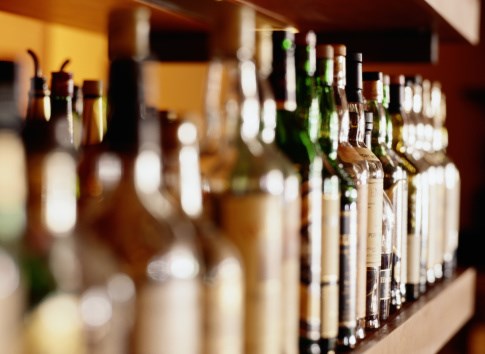Changes to provincial regulations are unlikely to prompt many Victoria grocery stores to sell liquor, city staff say.
B.C. grocery stores will be allowed to sell alcohol in special sections beginning April 1, but a lack of new licences and a shortage of appropriate locations mean the change is unlikely to have a major impact in Victoria, says a report going to council today.
The province has a moratorium on new private liquor store licences, which means that a grocery store wanting to sell alcohol would have to partner with an existing private liquor store or arrange for a transfer of an existing licence, the report says.
As well, the “one-kilometre rule” — which lays out the minimum distance between new or relocating private liquor stores — will be maintained and expanded to include B.C. Liquor Stores.
“Possible locations for a combined grocery/liquor store are limited, as staff believe that there are likely few, if any, commercially zoned properties within the city that are not within one kilometre of an existing liquor store,” the report says.
The store location would also have to have the proper zoning in place.
Grocery stores that want to limit their liquor sales to 100 per cent B.C. wines are far more likely, says the report.
In December, the province announced an exception to the one-kilometre rule for grocery stores selling only B.C. wines and said that a limited number of new licences would be made available for that type of retail model.
Coun. Ben Isitt said he favours the sale of beer and wines in grocery stores.
“I would be curious to see how in Quebec and other jurisdictions the sale of … drinks like beer and wine, what that would look like in the grocery stores,” Isitt said.
City staff also highlighted a provision that could allow food-primary licensees to operate as liquor-primary establishments during certain hours.
While the suggestion is that residents and local governments are to be consulted about such changes, the form of consultation has not yet been determined, the report says.
City staff are recommending an adjustment to the business bylaw to bring minimum drink prices in line with the provincial minimum. The provincial minimum prices and the city’s are the same — $3 for 1.5 ounces of spirits, 5.0 ounces of wine or 12.0 ounces of beer — but the city’s prices include taxes while the province’s do not.
The staff report says councillors may want a review of both its own and Vancouver bylaws on issues surrounding noise related to licensed seats downtown.
Vancouver’s bylaw includes many of the same regulatory requirements that Victoria has, but also requires all bar, serving and security staff to complete relevant training programs; that management, security and first aid-certified personnel be present at certain hours; and that signs be posted requesting customers to be respectful of the neighbourhood.
The Vancouver bylaw also distinguishes between standard-hour and extended-hour establishments, with the latter paying an annual licence fee of $15.05 per seat. Standard-hour establishments pay $5.55 per seat.
Coun. Charlayne Thornton-Joe, council liaison to the downtown, said conflicts can arise as the number of people living downtown increases.
“As we start to support more residential downtown, we’re really going to have to look at the impact of the late-night bar issues. … Whether we have to put in new guidelines, whether the sound level has to be reduced, whether we need to look at hours, whether we need to look at how many establishments we keep approving with regard to seats — all of those things need to be looked at,” she said.
Isitt said he would like some sort of a per-drink levy on liquor-primary seats to offset costs such as policing. “In many respects, holding a liquor-primary licence is a licence to print money,” he said.



